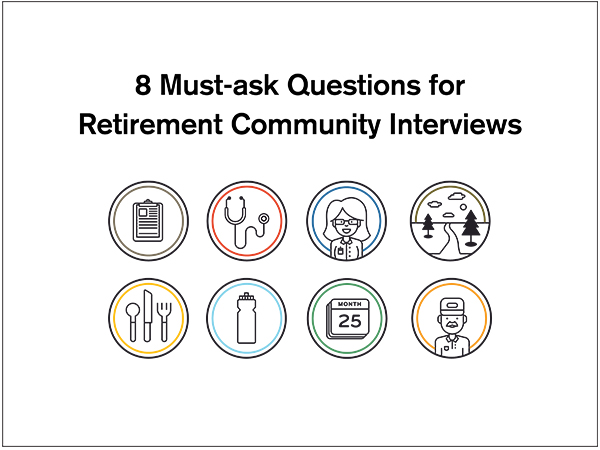The holiday season often brings cherished moments of togetherness and celebration. As adult children, it’s a time when we reunite with our aging parents, sharing stories, laughter and the warmth of family traditions.
However, amid the festivities, some of us may notice subtle changes in our parents, especially in their cognitive functions. These changes can be unsettling, as they may raise concerns about the possibility of early signs of dementia.
Understanding what to watch for and how to address these concerns is crucial. In this blog, we’ll explore signs of dementia, dementia symptoms and what adult children with aging parents should be aware of during the holiday season and beyond.
Early Signs of Dementia: Six Behaviors To Watch For
- – Memory loss: Memory loss is often one of the earliest signs of dementia. While occasional forgetfulness is expected, be vigilant if your parent frequently forgets important dates, appointments or recent conversations. They might ask the same questions repeatedly.
- – Confusion: If your parent appears disoriented, confused about time or place, or gets lost in familiar surroundings, it can be an early sign of dementia.
- – Difficulty communicating: Struggling to find the right words, repeating themselves or needing help following and joining conversations are common signs.
- – Mood changes: Pay attention to significant mood swings or personality changes. Dementia can lead to increased irritability, apathy or withdrawal from social activities.
- – Difficulty managing money: If your parents start having trouble managing their finances, such as forgetting to pay bills or making unusual financial decisions, this can be a warning sign.
- – Poor judgment: A noticeable decline in judgment, decision-making abilities or the inability to recognize risky situations may indicate cognitive decline.
Related reading: Activities to Educate Your Mind.
Addressing Dementia Symptoms
Dementia can manifest differently in women and men. Early signs of dementia in women may include more pronounced memory issues, while changes in behavior and personality often are early signs of dementia in men. These gender-specific variations can make it challenging to identify dementia early on.
If you notice dementia symptoms in your loved one during holiday visits, be sure to approach the situation with empathy and care. Initiating a conversation about their cognitive health can be delicate, but it’s crucial for their future well-being. Before starting a discussion, here are some tips to remember:
- – Choose the right time and place. Find a quiet, private setting where you can talk without interruptions or distractions.
- – Express concern, not accusation. Frame your conversation in a way that shows your love and concern. Avoid making accusations or placing blame.
- – Be a good listener. Allow your parent to share their thoughts and feelings. Listen without judgment and provide emotional support.
- – Offer help. Let your parent know you’re there to support them and help them find a way through the challenges they may be facing.
What To Look For in a Memory Care Community
In some cases, the early signs of dementia may progress, necessitating specialized care. Memory care communities can provide the tailored support and environment your parent may need. These communities are designed to offer a safe and engaging space for older adults with Alzheimer’s or other forms of dementia.
Before you visit or select an assisted living or memory care community for your loved one, do some research and consider these suggestions:
- – Ensure the community has a team of skilled professionals trained in dementia care. They should provide compassionate, individualized care.
- – Look for a secure environment with features that prevent wandering, such as locked doors and secure outdoor spaces.
- – Check if the community offers activities and programs designed to stimulate cognitive functions and enhance the quality of life for residents.
- – Verify the community provides well-balanced, dementia-friendly meals. Nutrition and overall well-being go hand in hand.
- – Choose a memory care community that encourages involvement with loved ones and provides opportunities for family visits and participation in care plans.
- – Read reviews and seek recommendations from others who have had a positive experience with a memory care community.
Related reading: Eight must-ask questions for choosing a retirement community.
Plan for the Future With Help From Paradise Valley Estates
Remember that the holidays can be emotionally charged or overwhelming for some older adults, so approach cognitive decline conversations with sensitivity. It’s an opportunity to demonstrate your love and commitment to your aging parents’ health and happiness. With the right support and care, you can navigate this memory care journey together.
Recognizing the early signs of dementia is just the beginning. Ensuring your loved one’s well-being also includes a plan for the future — from collaborating with healthcare professionals and consulting specialists to exploring assisted living and memory care options, when necessary.
As a Life Plan Community, Paradise Valley Estates guarantees life care through unlimited, onsite health services, including assisted living, enhanced assisted living, short- or long-term rehabilitation, memory care and skilled nursing. Residents have the power to live as they choose, with the promise of care and support when they need it.
Contact us or explore our spectrum of residence options and healthcare and wellness services available for you or your loved one.
Featured Image: Drazen Zigic / Shutterstock




